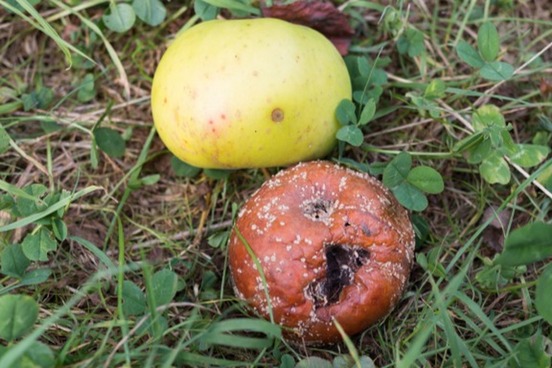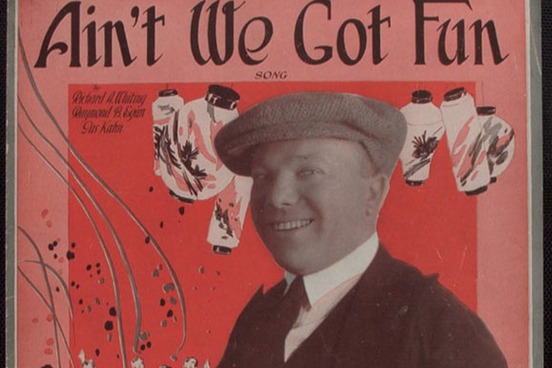
Funner & funnest
Definition: More (or Most) Amusing or Enjoyable
I am sad that "funner" and "funnest" are not proper words. They are lots of fun to use anyway.
—User Comment on "Fun," Merriam-Webster.com
We may often use fun as an adjective today (‘I had a fun time’), but when the word first entered the English language at the end of the 17th century it was mostly used as a verb or a noun. In both of these cases the meaning had more to do with cheating or trickery than with enjoyment (to fun someone meant to trick them, and the noun form of fun was an instance of trickery or cheating).
In the middle of the 19th century the word shifted, and began to be used as an adjective. This change was not met with widespread approval, and to this day one may still find considerable numbers of people who insist that fun, no matter how many people might use it as such, is not properly an adjective. If, however, we accept that fun is an adjective, it seems reasonable that the comparative and superlative endings of -er and -est would be used. While more fun and most fun may still be the more common forms, there is evidence suggesting that a large number of speakers and writers of English are entirely comfortable with tacking an -er or an -est to this little word.
For even more information on "funner" and "funnest" see here: https://www.merriam-webster.com/words-at-play/are-funner-and-funnest-real-words-usage

Stupider
Definition: Slower of Mind, Less Intelligent
My question was if "stupider" was really a word .... I was taught that the correct use would be "more stupid". Have the rules really changed?
—User Comment on "Stupid," Merriam-Webster.com
There is often a great deal of confusion regarding which adjectives in English should be modified by adding an –er or an –est to the end, and which should be modified through the addition of a new word (generally more or most). If you find yourself among those who are occasionally beset by doubt in this regard you are not alone, for the rules (if they can rightly be called such) on the matter have long been in flux, and have confused an untold number of people over the years.
Most one-syllable adjectives are modified with -er or -est, except for exceptions such as ill. Most two-syllable adjectives that sound like they end with a vowel, such as yellow or tricky, are modified by -er or -est. Many, but not all, two-syllable adjectives that end with a consonant sound (such as righteous) are modified with more or most. However, some two-syllable adjectives ending in a consonant can take the -er ending (such as wickeder). Confused yet?
Adjectives of three or more syllables are almost always modified with more or most today, although this has not always been the case. Shakespeare and many other writers of his time frequently would add an -er or an -est to words of three or more syllables such as honourablest.
Where does this leave stupider? There is no simple answer. Many people, finding that the sound grates upon their ear, argue for more stupid to be used instead. Others find that it works just fine.

Worser
Definition: Substandard Comparative of Bad or Ill
“Is worser a word? My 10yr old son and ex husband say's it's not and I really don't want them to be right. It's in the song welcome to the jungle.”
—User Comment on "Worser," Merriam-Webster.com
Worser may indeed be a word to be frowned upon, but that does not mean that it is not a word. It has been in regular use in English since the end of the 15th century, and may be found in the writing of some of our most esteemed authors:
I cannot hate thee worser than I do, if thou again say "yes."
—William Shakespeare, Antony and Cleopatra, 1623Much less all which the tempted worser part have held…
—Richard Baxter, Preservatives against Melancholy and Over-much Sorrow, 1716"Worser than that," roared the fat boy, in the old lady’s ear.
—Charles Dickens, The Pickwick Papers, 1836

Irregardless
Definition: Nonstandard Form of Regardless
“irregardless is not a word. this nonstandard definition above is GARBAGE. If you say "irregardless" or write it, you are basically confirming that you are a moron.”
—User Comment on "Irregardless," Merriam-Webster.com
Passions run high when the word irregardless enters a conversation. There are few people who would go so far as to argue that it is acceptable for formal discourse (and we label the word nonstandard), but this is not enough for many, who despise the word so much that they feel that dictionaries should refuse to even acknowledge its existence.
However, if a word is used with regularity by a certain number of people, for a certain length of time, to mean a certain and specific thing, it becomes a word, whether we like it or not. And there is no question that irregardless meets the criteria for inclusion in a dictionary of general English usage. Although it has long been thought to have originated in the early 20th century, recent research has shown that irregardless has been used for considerably longer, and may be found as far back as 1795 (and is in regular use throughout the entire 19th century as well).
But death, irregardless of tenderest ties, Resolv’d the good Betty, at length, to bereave.
—City Gazette [Charleston, NC] 23 June 1795Or is it because the bloodhound spirit of an office-seeker will track any victim so that he can but secure the spoils irregardless of any incumbent, however faithful, honest, or competent he be?
—The Daily Union [Washington, DC] 13 July 1849The forty-third section, providing that all children (irregardless of color) shall be received into the public schools on pain of fine and imprisonment, was adopted.
—The Times-Picayune [New Orleans, LA] 11 February 1870

Anyways
Definition: 1. In Any Manner or Respect 2. Anyhow, Anyway
“I'm amazed that that this improper use of the word anyway has become a real word. Bad English. I will NEVER use this word and I'm amazed at the people that use it with great authority.”
—User Comment on "Anyways," Merriam-Webster.com
There are two main uses of the word anyways: one which is very old and does not attract much attention, and a more modern one which attracts considerable scorn. The first one, which carries the meaning of "in any way whatever," has been used in English since the 13th century. The second one has been used since the middle of the 19th century to mean "anyhow" or "anyway."
This second use is generally listed in dictionaries as chiefly dialect, which should not be interpreted as meaning "not a word," "not a real word," "this is a no-good, rotten, horrible word," or anything of the kind. Labelling a word chiefly dialect means that it is primarily used in a variant of language that is found in a particular area. You may not want to use dialectical words in formal writing, but that does not make them any less real.

Impactful
Definition: Having a Forceful Impact; Producing a Marked Impression
“I heard some lame brain broadcaster use the term "impactful". It hurt so much I almost cried.”
—User Comment on "Impact," Merriam-Webster.com
One of the reasons some people spit with contempt upon hearing the word impactful is that they believe it is the recent and illegitimate offspring of some venal advertising copywriter’s ambitions and a cheap dictionary. Impactful may indeed be a recent word, but it did not come from the world of marketing; our earliest evidence for it dates from 1950, when it appeared in a theater review in The Cincinnati Enquirer.
Another possible reason that impactful raises so many hackles is that it comes from the word impact, which has itself seen no small controversy. “Impact is NOT a verb!!!” has been the rallying cry of many self-appointed guardians of the English language over the past number of decades, and the fact that impact actually existed as a verb for about 200 years before it began being used as a noun has done little to change anyone's mind on this subject. For this reason, many cry foul whenever any apparently new form of impact is noticed.

Incentivize
Definition: To Provide with an Incentive
“It is a horrible word. Can we just remove it everywhere?”
—User Comment on "Incentivize," Merriam-Webster.com
You may find yourself of the opinion of the commenter above, and think that incentivize is a horrible word. If so, you are likely in the majority, for a great many people find this word to be objectionable. Perhaps you find that it demoralizes you, that this dictionary would so bastardize the language by seeming to authorize, canonize, and baptize this word—or perhaps you are beginning to realize just how many words the English language has that end with -ize.
The fact that incentivize is formed in much the same manner as these other words does not, of course, mean that it is a reasonable or lovely word, or that one has to like it. However, the fact that many people use it in the same manner as these hundreds of other -ize words does mean that it is a word.
We seem to have a penchant for complaining about certain -ize words; finalize has been rankling people for ages, despite the fact that it has been used in English for well over 200 years.
“There will indeed remain no other Method of putting an End to the Suffering of the Unfortunate…and this Bill, as least, as it now stands, will perpetuate, not finalize, the Pangs of Adversity.”
—London Public Advertiser 24 April 1780

Strategize
Definition: To Devise a Strategy or Course of Action
“A customer overheard me use the word strategize in reference to planning our work calendar. He told me it wasn't a word and suggested I use the word plot. I think not.”
—User Comment on "Strategize," Merriam-Webster.com
Many august sources have decided that strategize is not a word. These range from various spell-check programs to Urban Dictionary, whose current top entry for this reads "A contemporary non-word that has gained acceptance as appropriate business terminology." We respectfully disagree. Strategize is not entirely confined to the realm of business terminology, nor is it entirely contemporary, unless one considers the presidency of Andrew Jackson to be contemporary, as our earliest known citation for the word (with a British spelling) comes during his first term in office.
The Imperial generals were constantly out-strategised.
—British Register May 1832
Strategize is found in consistent use throughout the 19th century, and at least initially appears to have little to do with the world of business.
You thought I weren’t friendly to the match, ‘cause to please Miss Amelia, I strategized to keep you and Blanche apart.
—Blanche Dearwood, 1855)And such wire-working and laughable schemes to defeat it, I never saw nor thought could be strategized in the American Senate.
—The Christian Recorder [Philadelphia, PA] 14 March 1863

Legit
Definition: Slang Term for Legitimate
“I wasn't sure if it was a real word....still not sure.”
—User Comment on "Legit," Merriam-Webster.com
Many people are unsure whether legit is itself legit, and whether people who use this word should be ostracized from polite society. It is worth noting that our language is awash in similar words which have been formed by shortening an existing word, and which we use without feelings of misgiving.
Fancy is a shortening of the word fantasy, phone is taken from telephone (some guides of English usage in the mid-20th century did think phone was improper), and mob, the word for an unruly mass of people, comes from the word mobile (which is itself taken from the Latin mobile vulgus, meaning ‘the moveable common people’). Some words even come from multiple shortenings: the taxi portion of taxicab is from the word taximeter, and the cab portion comes from cabriolet (a 2-wheeled, horse-drawn carriage). This particular shortening makes a certain amount of sense, as taximetercabriolet would be an unwieldy mouthful.
Legit has been used since the beginning of the 20th century as both an adjective meaning "legitimate" and as a noun referring to legitimate theater or drama.

Ain't
Definition: Are Not; Is Not; Am Not; Have Not; Has Not
“I typed it, and my computer did not underline it with red. I thought to myself, what has this world come to?”
—User Comment on "Ain't," Merriam-Webster.com
When Merriam-Webster published its Third New International Dictionary in 1961, often called Webster’s 3rd, there were a number of critics who took exception to the treatment of some of the words defined in its pages. Perhaps the foremost cause of complaints was the usage note for the word ain’t, which read “though disapproved by many and more common in less educated speech, used orally in most parts of the U.S. by many cultivated speakers, esp. in the phrase ain’t I.”
There may have been some grudging acceptance of ain’t in the years since then, but if our reader comments are any indication, many people still find it appalling that this word is recognized in our dictionary. Our entry for ain't notes that it has been in use for over 250 years (since at least 1749), offers examples of its use by notable figures (Richard Nixon, Andy Rooney, and Mike Royko), and provides examples of its use in other aspects of popular culture (such as song lyrics). There is not much more that can be done to show that ain’t is indeed a word. Its inclusion in the dictionary is not an official seal of approval, but an acknowledgement that it exists.

Are These Words for Real?
Have you ever doubted the word choices of friends, strangers, or yourself? We're here to set things straight.
SEE THE LIST >





